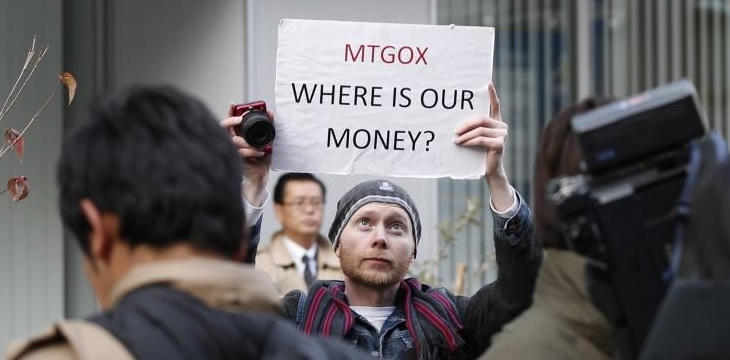|
Getting your Trinity Audio player ready...
|
A closure is within reach in the Mt. Gox situation, after the Tokyo District Court announced that the assets belonging to creditors of the now defunct cryptocurrency exchange will finally be distributed back to their rightful owners. The considerable number of Bitcoins runs into the hundreds of millions of dollars and has hung like a dark shadow over all cryptocurrency exchanges over the past few months. In fact, most analysts blame the Mt. Gox debacle for the decline in cryptocurrency prices of up to 80% over the past months.
Last week, the Tokyo District Court ordered the start of the “civil rehabilitation proceedings” of Mt. Gox. With this, the exchange’s “enormous assets,” which were distributed to the company’s shareholders during the bankruptcy proceedings, will be returned to Mt. Gox’s creditors.
Commencement of Civil Rehabilitation Proceedings of Mt.Gox https://t.co/JyqLlYIb6U
— mtgoxcreditors (@mtgoxcreditor) June 22, 2018
Tokyo-based Mt. Gox was once the world’s largest exchange platform for bitcoin until it filed for bankruptcy in 2014, claiming it had lost 850,000 of its bitcoins, which are worth more than $450 million at the time, to hackers. The theft left the crypto exchange insolvent, resulting in its filing for criminal bankruptcy.
Under criminal bankruptcy, Mt. Gox’s creditors would be paid in fiat currency at the exchange rate in 2014, estimated at $480 per coin. It would have also meant that Mt. Gox ex-CEO Mark Karpeles would have been left with the remaining proceeds, which would have reached hundreds of millions of dollars given that the price of BTC has already appreciated in the last four years. Karpeles, however, already went on record to say he doesn’t want the money.
This is why the creditors considered the Tokyo District Court’s ruling a “victory,” although it’s one that will only be realized after Mt. Gox finally pays the creditors. The ruling will allow the creditors to be refunded directly in cryptocurrency, subject to the rehabilitation plan that will be crafted and approved in the ensuing proceedings.
“To that end, a rehabilitation plan to certainly and promptly realize creditors’ rights should be prepared, approved at the creditors’ meeting, and approved by the court,” according to the creditors.
However, the creditors acknowledge that there might be differences in what is being proposed by Mt. Gox and what is requested by the investors, noting that: “A rehabilitation plan, which provides creditors rights in the proceedings, will be primarily prepared by the trustee; therefore, creditors’ opinions will not always be reflected to the rehabilitation plan prepared by the trustee.”
Additionally, the website states that: “We would like to reflect creditors’ opinions to the rehabilitation plan by proposing our opinions or plan to the trustee. Under Japanese Civil Rehabilitation Act, a creditor is entitled to submit his or her plan if the court permits.”
The submission deadline for the proposed rehabilitation plan is on February 14, 2019, although the schedule is subject to change as the civil rehabilitation proceedings progress.

 02-25-2026
02-25-2026 




